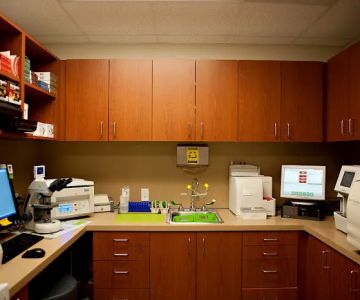Do Vet Tech Classes Count Towards Veterinary Medicine? A Comprehensive Guide
- 1. Understanding the Path to Veterinary Medicine
- 2. Vet Tech Classes Versus Veterinary Medicine
- 3. The Benefits of Vet Tech Classes
- 4. Real-World Examples and Case Studies
- 5. Conclusion: What Does It Mean for Your Career?
1. Understanding the Path to Veterinary Medicine
If you’ve ever wondered whether vet tech classes count towards veterinary medicine, it’s important to first understand the different paths in the veterinary field. Veterinary technicians and veterinarians are both vital parts of animal care, but their education and career trajectories differ. Veterinary technicians typically complete associate-level programs in veterinary technology, while veterinarians attend veterinary school and earn a Doctor of Veterinary Medicine (DVM) degree. So, while vet tech classes do not directly lead to a veterinary medicine degree, they play a crucial role in developing the foundational skills for animal care.
2. Vet Tech Classes Versus Veterinary Medicine
Vet tech classes provide a comprehensive education in animal health, anatomy, and physiology, as well as practical skills like administering treatments and assisting in surgeries. While these courses are designed to prepare students for careers as veterinary technicians, they do not count directly toward the advanced studies required to become a veterinarian. However, the knowledge gained from vet tech education can be invaluable for aspiring veterinarians. Many future vets start by becoming vet techs, as this experience allows them to work closely with animals and gain firsthand knowledge of veterinary practices.
3. The Benefits of Vet Tech Classes
Vet tech classes offer many benefits, even if they don’t directly count toward a veterinary medicine degree. These classes provide students with hands-on experience in veterinary clinics, which can be an essential stepping stone for those looking to advance to veterinary school. Additionally, completing a vet tech program allows you to enter the workforce quickly, as you can become a certified veterinary technician in just two years. This experience is invaluable if you later decide to pursue a DVM degree, as it provides exposure to clinical practices, patient care, and the inner workings of a veterinary office.
4. Real-World Examples and Case Studies
Take the case of Emily, a veterinary technician who worked for five years before deciding to pursue her DVM. Emily started her journey by enrolling in vet tech classes and quickly realized how much she enjoyed working with animals. Her education as a vet tech gave her a deep understanding of animal care, which made her transition to veterinary school smoother. While vet tech classes didn’t count directly toward her veterinary degree, the experience was an essential part of her journey to becoming a veterinarian.
5. Conclusion: What Does It Mean for Your Career?
So, do vet tech classes count towards veterinary medicine? The short answer is no—they don’t directly contribute to the DVM degree. However, they can be an essential step on your career path, providing valuable skills and experience. If you're interested in a career in veterinary medicine, becoming a veterinary technician can be a great way to get started and gain experience in the field. For those who are passionate about animal care and want to go further, the skills gained through vet tech education will undoubtedly help in veterinary school and beyond.











